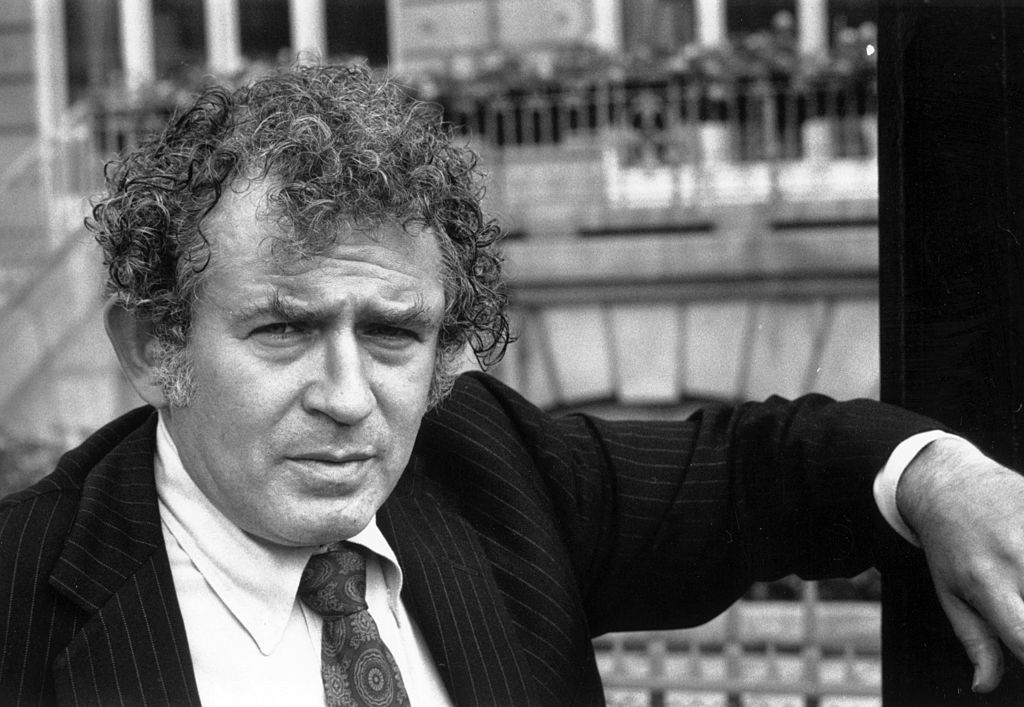Recently a story about my father, the writer Norman Mailer, getting “canceled” tore across the internet. What started the hoopla was Random House, Mailer’s longstanding publisher, suggesting that his estate bring a proposal for a book. The book was to contain excerpts from several of his political writings and interviews in which he presciently laid out the fragility of democracy. The collection was intended to honor his centenary next year.
Random House received the proposal favorably, but then weeks later declined to publish it. The reasons are hearsay. One suggestion is that there were objections by junior executives to the use of the word “negro” in Mailer’s essay “The White Negro.” Published in 1957, the essay explored the connection between the “psychic havoc” caused by the atom bomb and the Holocaust to the marginalization of black Americans in the form of the “existential hipster,” the outlaw hero who defied the mind-numbing conformity of the Eisenhower era.
Then, according to rumor, there were concerns from cultural critics who may have let my father’s past — dueling with the 1970s women’s movement, stabbing his wife Adele with a penknife in 1960 — jaundice their view of future publications.
Whatever the reason, the result is that the book will be published through Skyhorse, a publisher that seems to relish controversy. It published Woody Allen’s memoir after it was dropped by Hachette following staff protests, and Blake Bailey’s biography of Philip Roth after it was dropped by W.W. Norton when accusations surfaced against Bailey of sexual assault. Random House will instead recommit itself to promoting Mailer’s back catalogue, retaining the rights for the foreseeable future. A win-win. Perhaps. Perhaps not.
This row isn’t just about my father. It points to a larger issue about the state of publishing today. The irony of promoting Diversity™ while quashing truly diverse thought cannot be overlooked. If the publishing world is no longer a place for the free exchange of ideas, then where are we as a culture? Long ago, publishers stood up to a frenzied Joseph McCarthy hunting communist witches. If the brutish forces of fascism couldn’t cancel writers then, why is it happening now?
Cancellation is an ugly word. We should know better. Rather than preserving all our culture, nurturing the full gamut of voices, regardless of color, gender, orientation, age or any other defining feature, we have summoned the mob and set it on voices that don’t adhere to the party line.
The United States has spent the past few years eating its own, canceling great writers such as Philip Roth (for misogyny and bad relations with women), John Updike (ditto), Saul Bellow (the same again), William Styron (cultural appropriation) and yes, my father. All of them made essential contributions for more than half a century to our culture. All of them were patriots holding up a mirror to society, forcing us to examine ourselves and better understand the perils that stand in the way of the American experiment.
It seems those who remember the horrors of World War Two, my father among them, are nearly extinct. Lo and behold, that fascist instinct to cancel people and literature is flourishing. The Blue Team cancels independence with howls of wokeness. The Red Team cancels independence with cries of fake news. What has happened to America? Is our utterly brilliant, deeply flawed experiment unraveling? So much for staying power.
Perhaps, though, it is the fear of controversy, rather than offense, that has caused this whole argument over my father. After all, Random House is in the process of acquiring Simon & Schuster. The merger of the two entities would create the mother of all publishing houses. In such an aggrieved and disproportionate era, controversy is inevitably a bad thing, especially when you’re a publishing house seeking more power. I’m not so vainglorious as to assume that Random House’s choice not to publish my father’s new book is some deciding factor in a corporate merger, but the juxtaposition raises an eyebrow.
Regardless, if every work of art were evaluated on its creator’s perceived morality, the entire Western canon would be reduced to a factional state. Are we that far off from having our libraries expunged of Mark Twain because of his use of colloquial references that are now perceived as abhorrent? Or having Picassos removed from museum walls because of his monstrous behavior toward women? I’m all for bringing the skeletons out of the closet. And reasonable people can disagree about what to do with them. But committing bad deeds does not make a person’s contributions to culture invalid.
Democracy is about the free exchange of ideas, not the exchange of ideas that will be deemed free so long as they are predetermined to be agreeable. So let controversial writers continue to be published. Cherish what they gave to American thought. Acknowledge their failings. But don’t tell others what can or cannot be read.
This article was originally published in The Spectator’s March 2022 World edition.

























